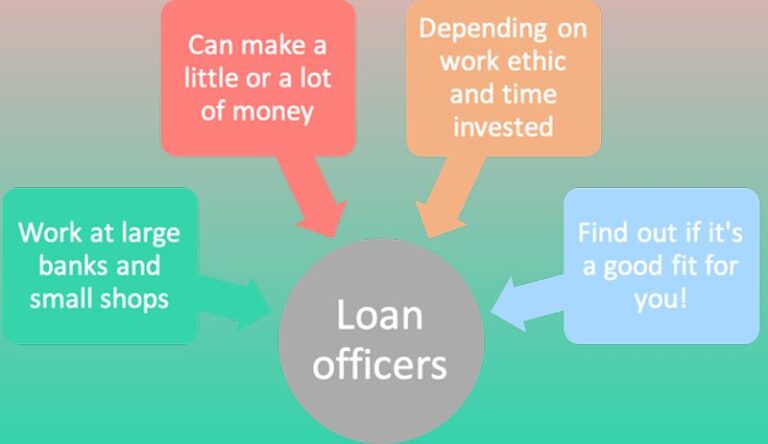Unlock Your Financial Freedom: The Best Places To Refinance Student Loans
Imagine graduating with a mountain of student loan debt, facing the daunting task of building a career and establishing financial stability. Fortunately, refinancing can provide a lifeline, potentially reducing your monthly payments and freeing up cash flow for other priorities. However, navigating the complex landscape of lenders and loan terms can feel overwhelming, making it crucial to identify the best places to refinance student loans.
Understanding the Power of Refinancing for Recent Graduates
The average student loan borrower graduates with over $30,000 in debt, a heavy burden that can significantly impact their financial future. Refinancing can offer a potential path to lower monthly payments and reduced interest costs, but it’s essential to understand the process and its implications.
Student loan refinancing involves replacing your existing student loans, both federal and private, with a new loan that typically offers a lower interest rate. This can result in significant savings over the life of the loan, freeing up funds for other financial goals, such as buying a home, starting a business, or simply enjoying more financial flexibility.
However, refinancing also comes with potential drawbacks, such as the loss of federal loan benefits, including income-driven repayment plans and public service loan forgiveness programs. Before making the decision to refinance, it’s crucial to carefully weigh the pros and cons and ensure that it aligns with your long-term financial objectives.
Key Factors to Consider When Choosing a Refinancing Lender
When researching the best places to refinance student loans, there are several key factors to consider:
Interest Rates
Comparing fixed and variable interest rates is crucial. Fixed rates provide stability, offering predictable monthly payments. Variable rates, on the other hand, may start lower but can fluctuate over time, potentially leading to higher payments in the future. Look for lenders offering the lowest average rates based on your creditworthiness and desired loan term. Keep in mind that even a small difference in interest rates can lead to significant savings over the life of your loan.
Fees
Avoid lenders that charge hefty origination fees or prepayment penalties. Common refinancing fees include origination fees, which are typically a percentage of the loan amount, and prepayment penalties, which may apply if you pay off the loan early. The best places to refinance student loans will have minimal or no fees, allowing you to maximize your savings. Be sure to read the fine print to understand all potential costs associated with refinancing.
Repayment Terms
Explore the flexibility of repayment options, including loan terms ranging from 5 to 20 years. Shorter terms may result in higher monthly payments but lower overall interest costs, while longer terms can provide more manageable monthly bills. Carefully consider your financial situation and goals when choosing a repayment term, as shorter loans can lead to substantial savings in interest over the life of the loan.
Customer Service
Consider the level of customer service and responsiveness offered by the lender. Reliable and helpful support can make a significant difference in your refinancing experience. Look for lenders that offer online account access, 24/7 customer support, and clear communication.
Additional Features
Look for lenders that offer unique features, such as cosigner release options, hardship deferment, and even loan forgiveness programs for certain professions. These features can provide additional peace of mind and flexibility in managing your loans.
The Best Places to Refinance Student Loans for Recent Graduates
Now, let’s explore some of the standout lenders that cater to the unique needs of recent graduates:
Earnest
Earnest is known for its commitment to providing low interest rates, with fixed-rate refinancing starting as low as 4.99% and variable-rate options beginning at 5.89%. The company’s focus on a holistic assessment of your financial profile, rather than just credit scores, can make them an excellent choice for recent graduates. Earnest also offers the ability to customize your loan terms, allowing you to choose the repayment schedule that best fits your financial situation.
PenFed Credit Union
PenFed Credit Union stands out for its flexibility, allowing parents with Parent PLUS Loans to transfer the debt to their children. This can be particularly helpful for recent graduates who are now in a better financial position to manage the loans themselves. PenFed also offers competitive interest rates and a strong reputation for customer service, making it a solid option for refinancing.
Laurel Road
Laurel Road is an appealing option for those with good credit, offering competitive rates, especially when you open a Laurel Road Linked Checking account and set up direct deposits. This can help you secure an APR as low as 4.97% with auto-pay discounts. Additionally, Laurel Road provides a user-friendly online platform, making the application process simple and efficient.
MPOWER Financing
If you have less-than-stellar credit, MPOWER Financing may be a viable solution. This lender does not require a credit score or credit history, instead focusing on your future earnings potential to determine eligibility. MPOWER Financing is particularly beneficial for international students and those with limited credit history, providing access to refinancing options that might otherwise be unavailable.
SoFi
SoFi stands out for its flexible repayment options, offering 5-, 7-, 10-, and 15-year loan terms with both fixed and variable rates. Additionally, SoFi provides the potential for loan deferment or forbearance if you experience financial hardship. With a strong emphasis on community and support, SoFi also offers career coaching and networking opportunities, making it a comprehensive resource for recent graduates.

Fintech lenders, such as Earnest and SoFi, have disrupted the traditional student loan refinancing market by offering innovative online platforms, streamlined application processes, and often lower interest rates. This increased competition has driven down rates and provided borrowers with more options to choose from. Fintech lenders are known for their user-friendly interfaces, transparent pricing, and quick turnaround times.
While fintech lenders have brought innovation to the student loan refinancing market, it’s important to note that they are relatively new players in the industry. Some borrowers may prefer to work with established, traditional lenders with a longer track record. It’s essential to thoroughly research any lender, including their customer reviews, financial stability, and track record, before making a decision.
Tips for a Successful Student Loan Refinancing Process
As you navigate the refinancing process, keep the following tips in mind:
-
Improve Your Credit Score: Take steps to boost your credit score before applying, as this can significantly impact the interest rates you qualify for. Pay down existing debt, ensure timely bill payments, and avoid opening new credit lines in the months leading up to your application.
-
Shop Around for Rates: Compare offers from multiple lenders to ensure you’re getting the best deal. Use online comparison tools to evaluate interest rates, fees, and repayment options. Remember, even small differences in rates can lead to substantial savings over time.
-
Read the Fine Print: Carefully review the terms and conditions, paying close attention to any fees or hidden clauses. Understand the implications of refinancing, especially concerning federal loan benefits you may lose.
-
Understand Your Options: Weigh the pros and cons of refinancing, considering your long-term financial goals and the potential loss of federal loan benefits. If you anticipate needing income-driven repayment plans or forgiveness programs, it may be wise to maintain your federal loans.
-
Seek Professional Advice: Consult with a financial advisor for personalized guidance on your specific situation. A professional can help you assess your options, understand the nuances of refinancing, and develop a strategy tailored to your financial goals.
While refinancing can be a powerful tool for managing student loan debt, it’s important to consider the potential drawbacks. Refinancing federal student loans with a private lender typically results in the loss of federal loan benefits, such as income-driven repayment plans and public service loan forgiveness programs. If you anticipate needing these benefits in the future, it may be wise to maintain your federal loans.
Alternatives to Refinancing
While refinancing can be a powerful tool for managing student loan debt, it may not be the best solution for everyone. Consider these alternatives:
Federal Loan Consolidation
Consolidating your federal student loans can simplify the repayment process, allowing you to combine multiple loans into one. While this won’t lower your interest rate, it can make managing your payments easier.
Income-Driven Repayment Plans
Enrolling in an income-driven repayment plan can make your monthly payments more manageable, especially for those with lower incomes. These plans adjust your payments based on your income and family size, ensuring that your payments remain affordable.
Public Service Loan Forgiveness (PSLF)
If you work in a qualifying public service job, the PSLF program may offer the opportunity to have your federal loans forgiven after making 120 eligible payments. This can be an excellent option for those committed to serving their communities while managing their student debt.
The Public Service Loan Forgiveness (PSLF) program has gained significant attention in recent years, with a major expansion announced in October 2022, which has led many borrowers to reconsider refinancing their federal loans. This program has encouraged some borrowers to prioritize maintaining their federal loans to potentially benefit from forgiveness, even if it means higher interest rates.
The Impact of Refinancing on Your Credit Score
When you refinance your student loans, the process typically involves a hard credit inquiry, which can temporarily lower your credit score. However, this impact is usually minimal and short-lived. As you make on-time payments on your new refinanced loan, your credit score will begin to improve over time.
It’s important to note that while the initial credit check may cause a slight dip in your score, the long-term benefits of refinancing, such as lower interest rates and simplified monthly payments, can have a positive impact on your overall financial health and credit profile.
The Role of Financial Advisors in the Refinancing Process
Navigating the student loan refinancing landscape can be complex, and it’s often beneficial to seek the guidance of a financial advisor. These professionals can provide valuable insights and personalized recommendations based on your specific financial situation and goals.
A financial advisor can help you assess the pros and cons of refinancing, compare offers from various lenders, and determine the best course of action for your unique circumstances. They can also advise on strategies to improve your credit score and maximize your savings through the refinancing process.
Conclusion
Refinancing your student loans can be a powerful tool for recent graduates seeking to reduce their debt burden and gain financial freedom. By understanding the process, carefully considering your options, and choosing the right lender, you can potentially save thousands of dollars in interest payments and achieve your financial goals. Remember to shop around for the best rates, read the fine print, and seek professional advice when necessary. Unlock your financial freedom today by exploring the best places to refinance student loans, and take the first step toward a brighter financial future.







